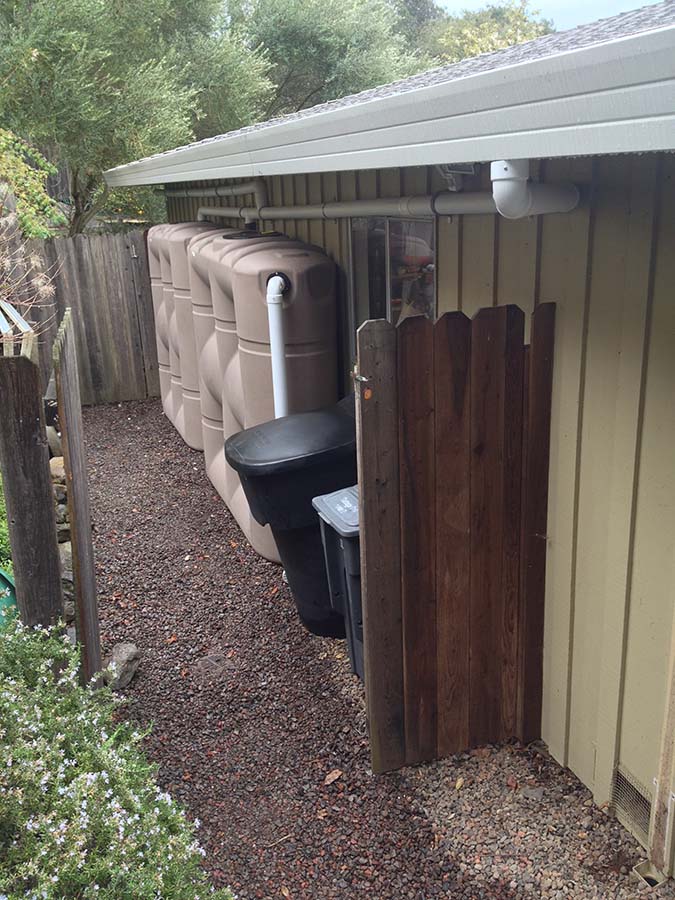
By Alan Butler AIA
This weekend I installed a thousand gallons of rainwater storage tanks in my side yard. I found some very nice Bushman Slimline tanks that are only 25” wide, fit neatly in my side yard, and still allow me to get by with the trashcans and the wheelbarrow. They collect roughly half of the water from my roof, and with a thousand square feet of roof area I can fill the tanks with 1 3/4 “ of rain. They were a fair amount of work to move around – weighing nearly 300 pounds apiece and being seven feet long and six and a half feet tall, it was a real trick for three of us to unload them. Once we pushed the tanks into place, I installed piping that led from the gutters to the tanks. With piping complete and a light rain on Sunday, I finally heard the satisfying sound of the rainwater flowing into the tanks.
While installing the tanks, one of my neighbors walked by and we started talking about the concept of payback. As with my home, he installed photovoltaic panels on his roof a couple of years ago. He related the story of attending an informational meeting about solar panels just before he put in his system. One member of the audience kept asking: “But what’s the payback?.” He related to me that while a friend of his bought a new Mercedes for $50,000 that same year, he bought a new Prius and his solar panel system. Nobody asked his friend what the payback was on his new Mercedes! My neighbor’s electric bills have dropped dramatically and in approximately seven to ten years the system will have paid for itself. He said even with economic facts in play, it was equally or more important for him to do the right thing. I won’t go into the whole argument about renewable energy, carbon dioxide and our current unsettled weather.
I looked at my utility bill for the first time in detail on Sunday evening. I found that our household uses three to five thousand gallons a month during a normal rainy winter and an astonishing twenty-five thousand gallons a month during the warmest part of the year. A thousand gallons of water probably costs only $15 when you look at all the flat fees and related sewer charges. If we have a really rainy spring and I’m diligent about using my harvested rainwater, my payback for the tanks might be fifteen rather than thirty years. Not a really compelling economic argument but…
I’ve already become a more conscientious consumer as the result of reading my bills carefully for the first time. My bills will likely drop as result. If we have a severe drought and have to cut back or eliminate landscape watering, I’ll be able to keep my lemon trees and vegetable garden going this summer. Unlike the luxury car, it really will pay back in both economic and less tangible, but significant ways. I feel like I’ve made the right decision. I’ll stick with my Toyota Hybrid too!
